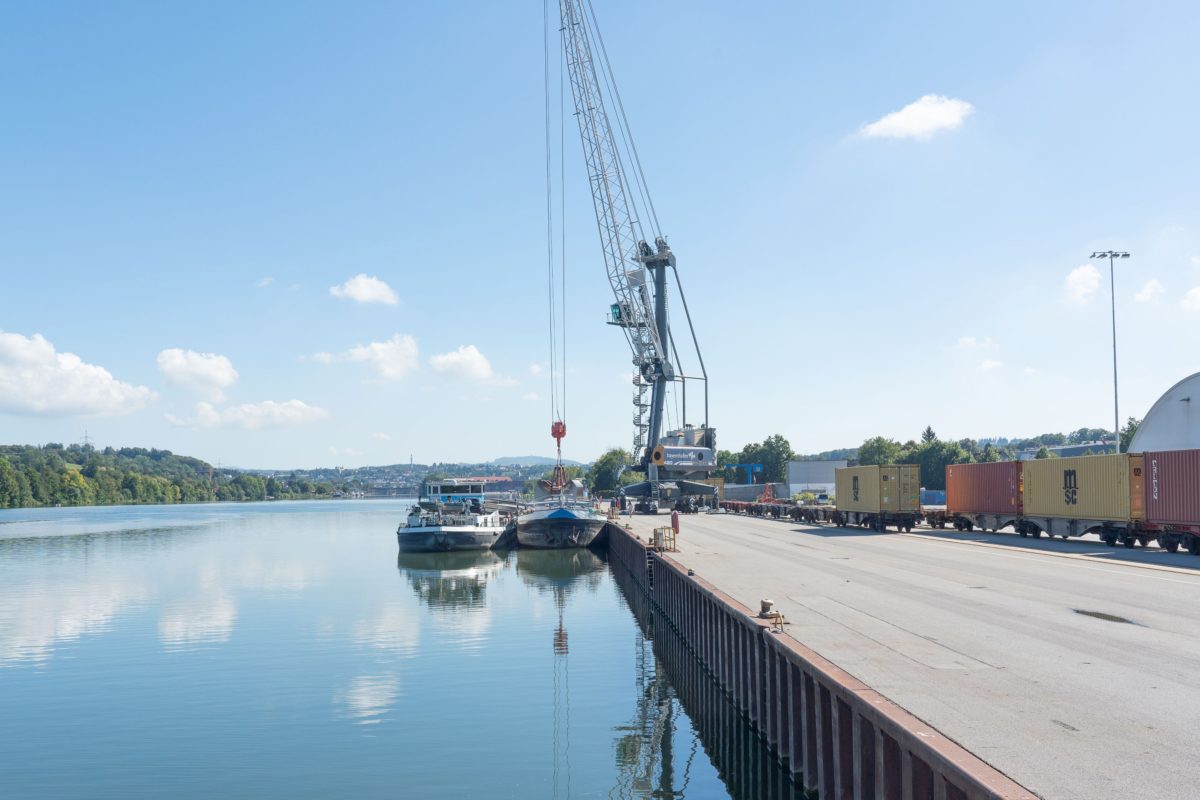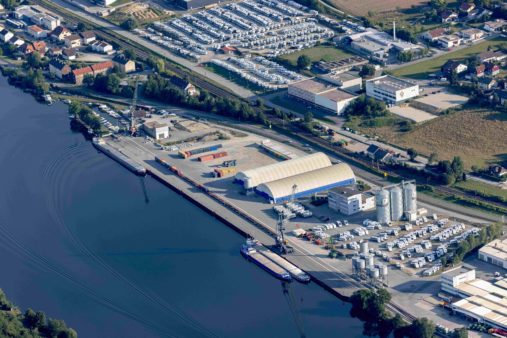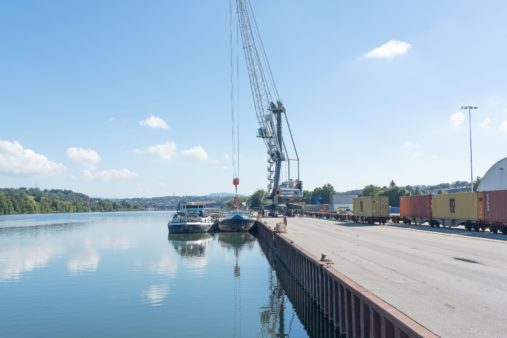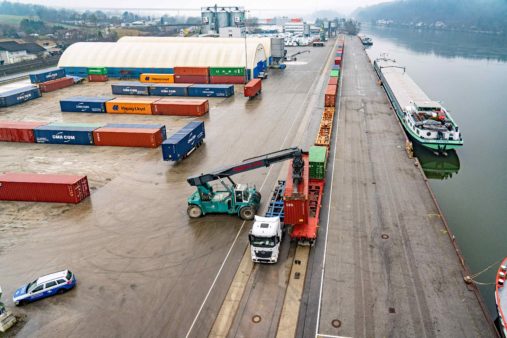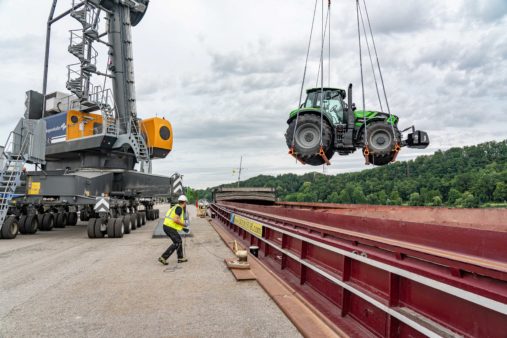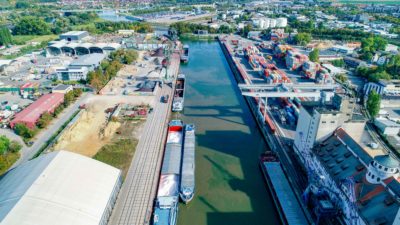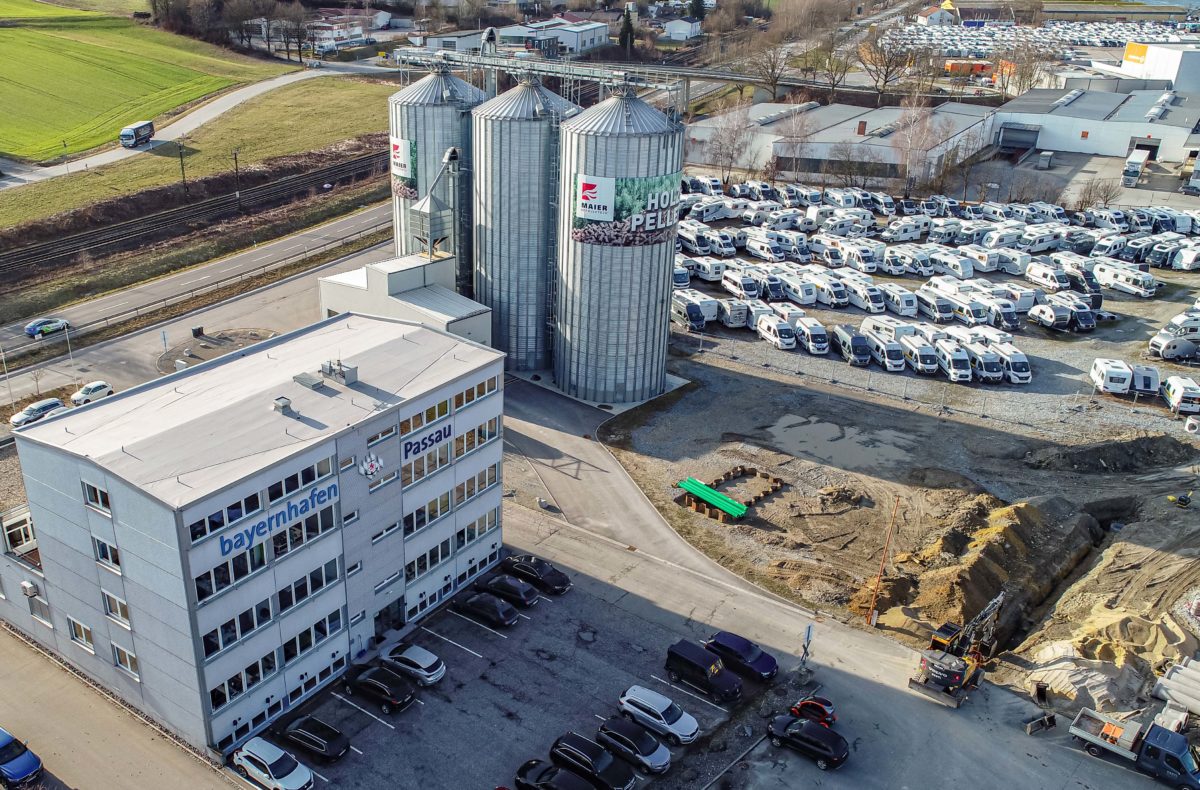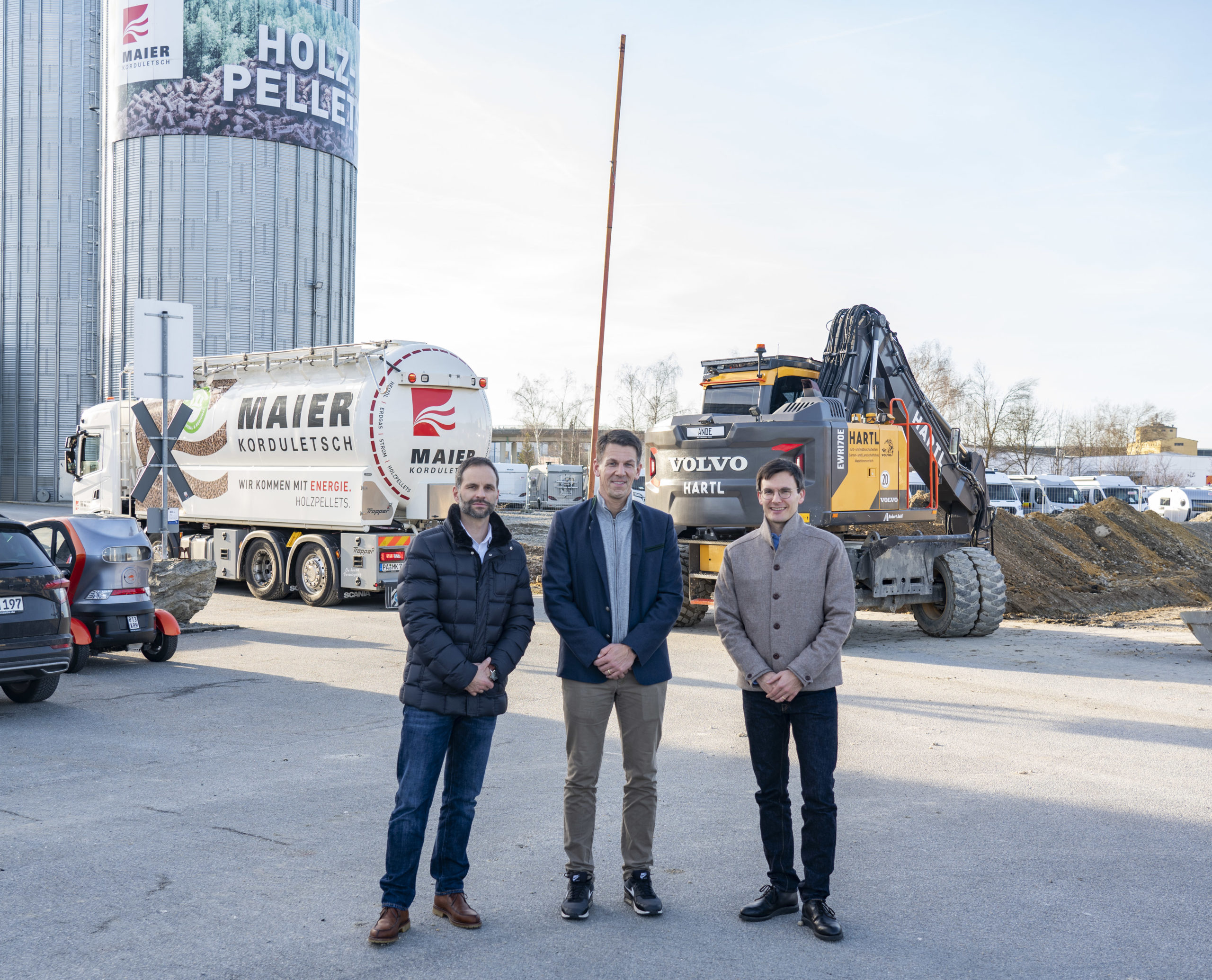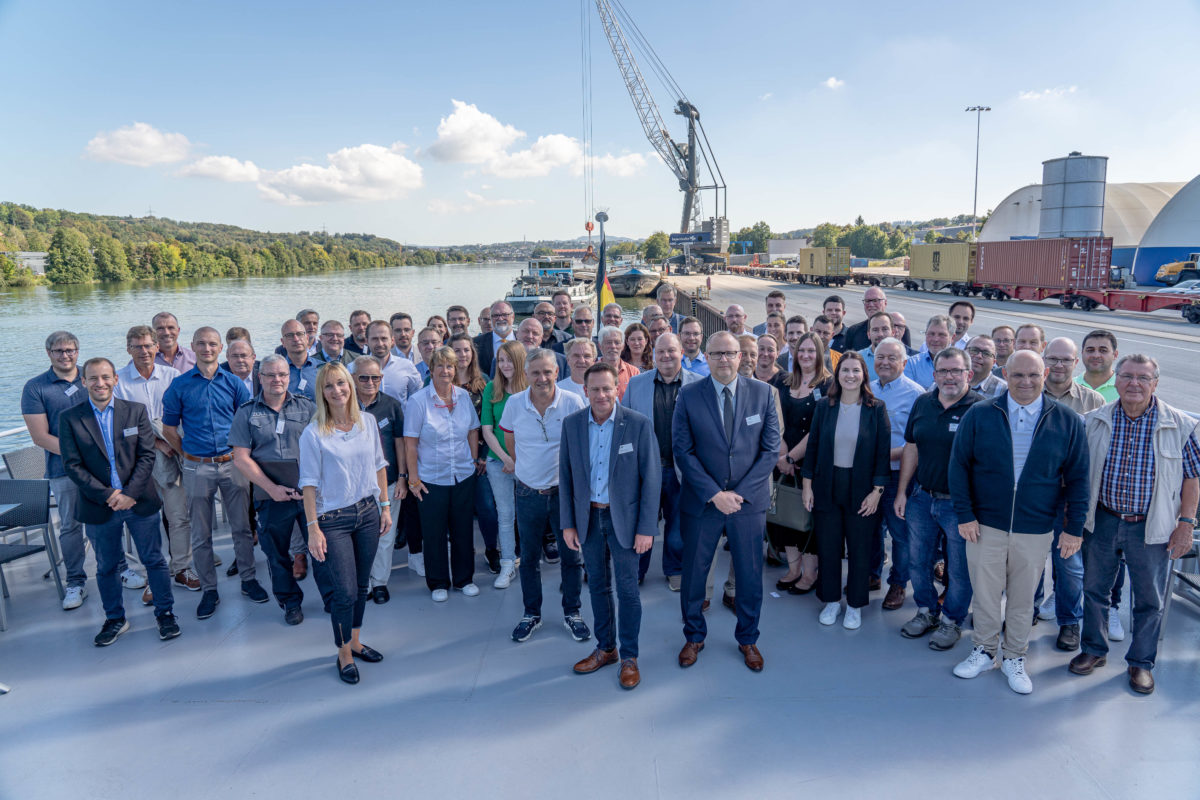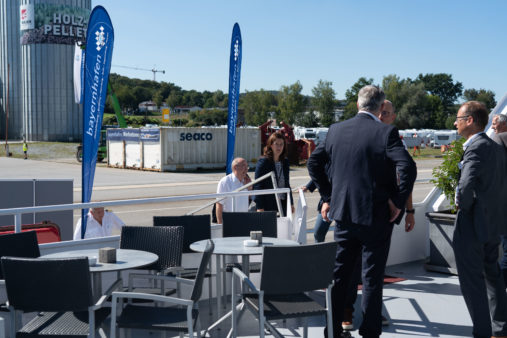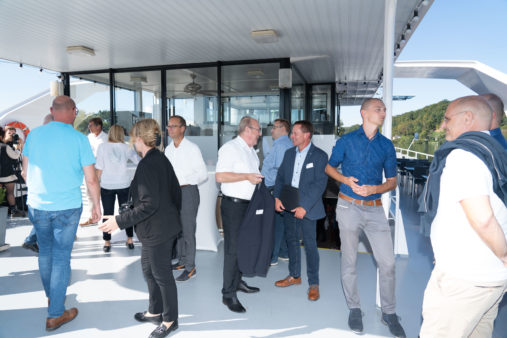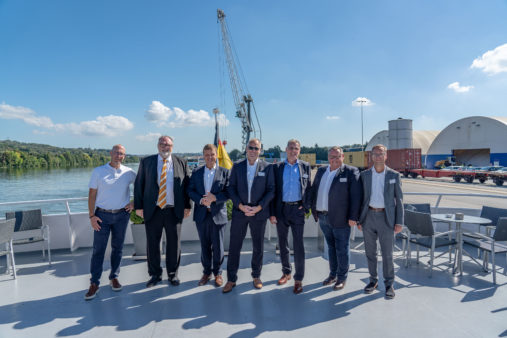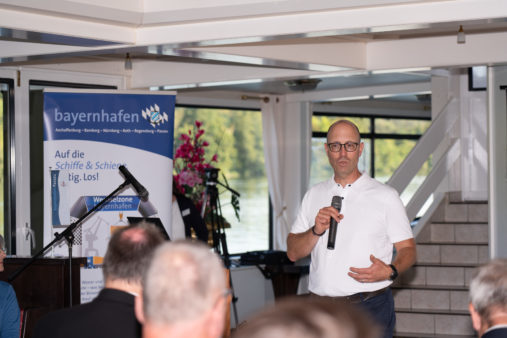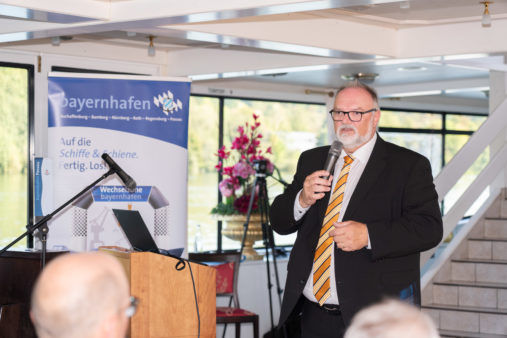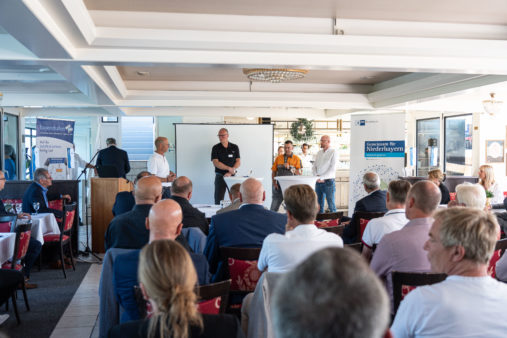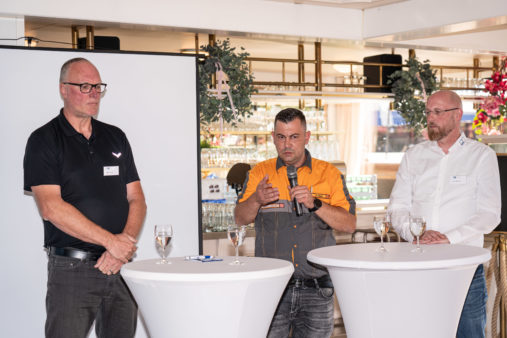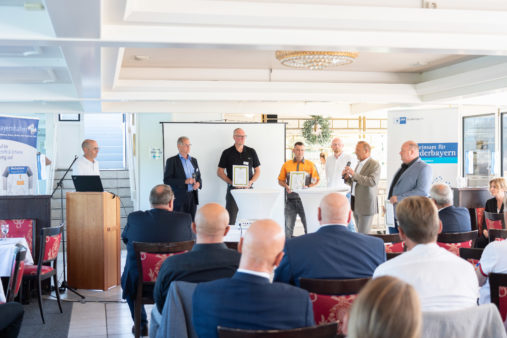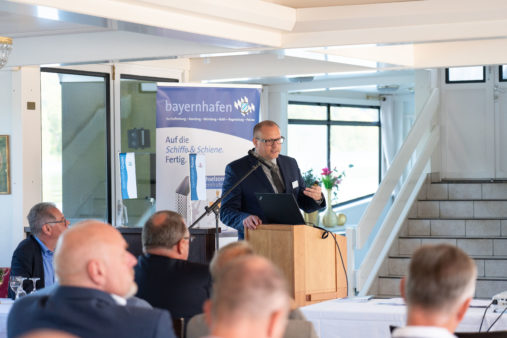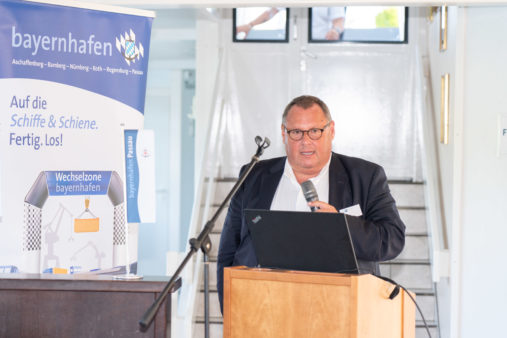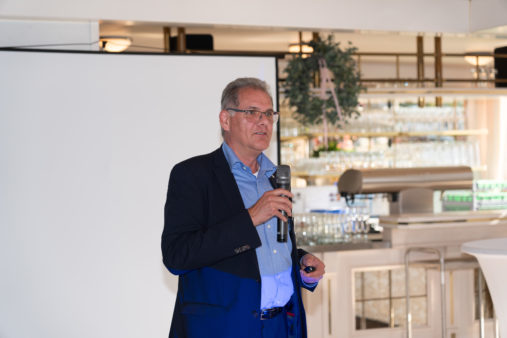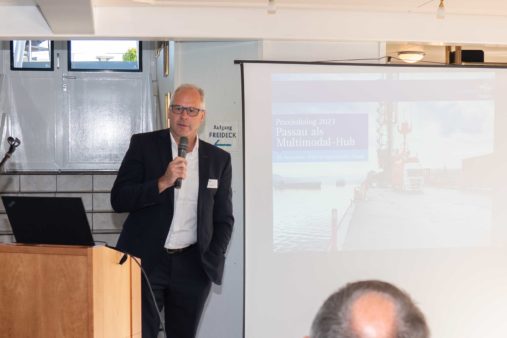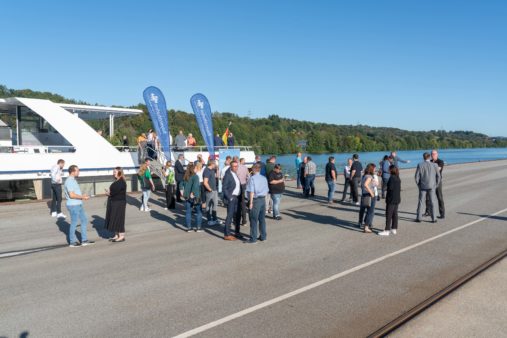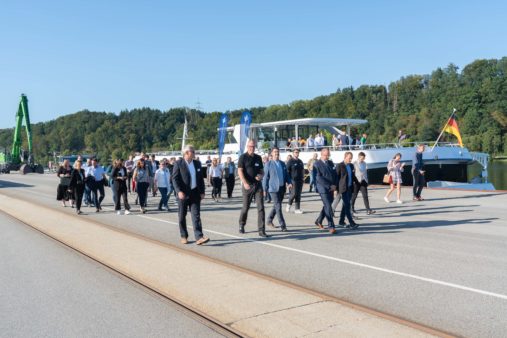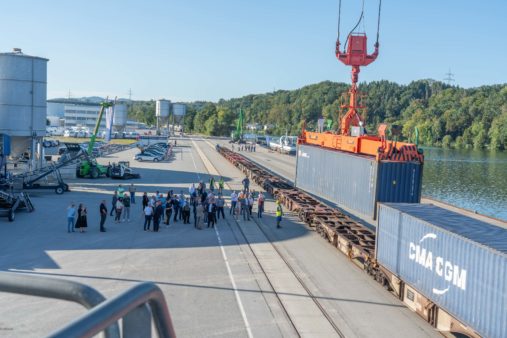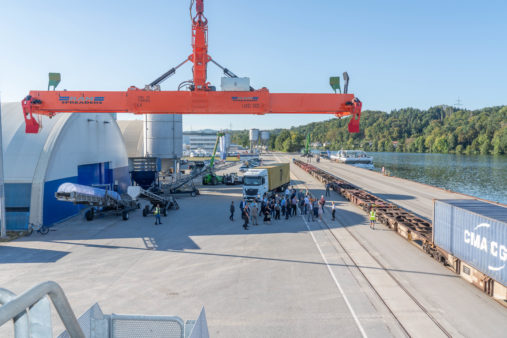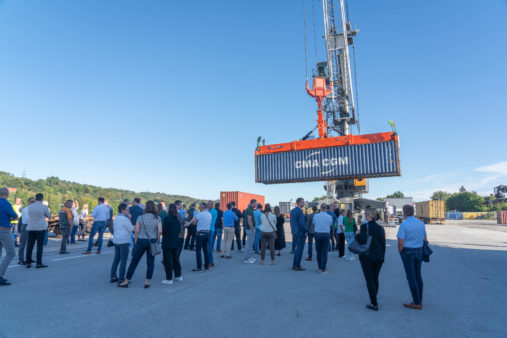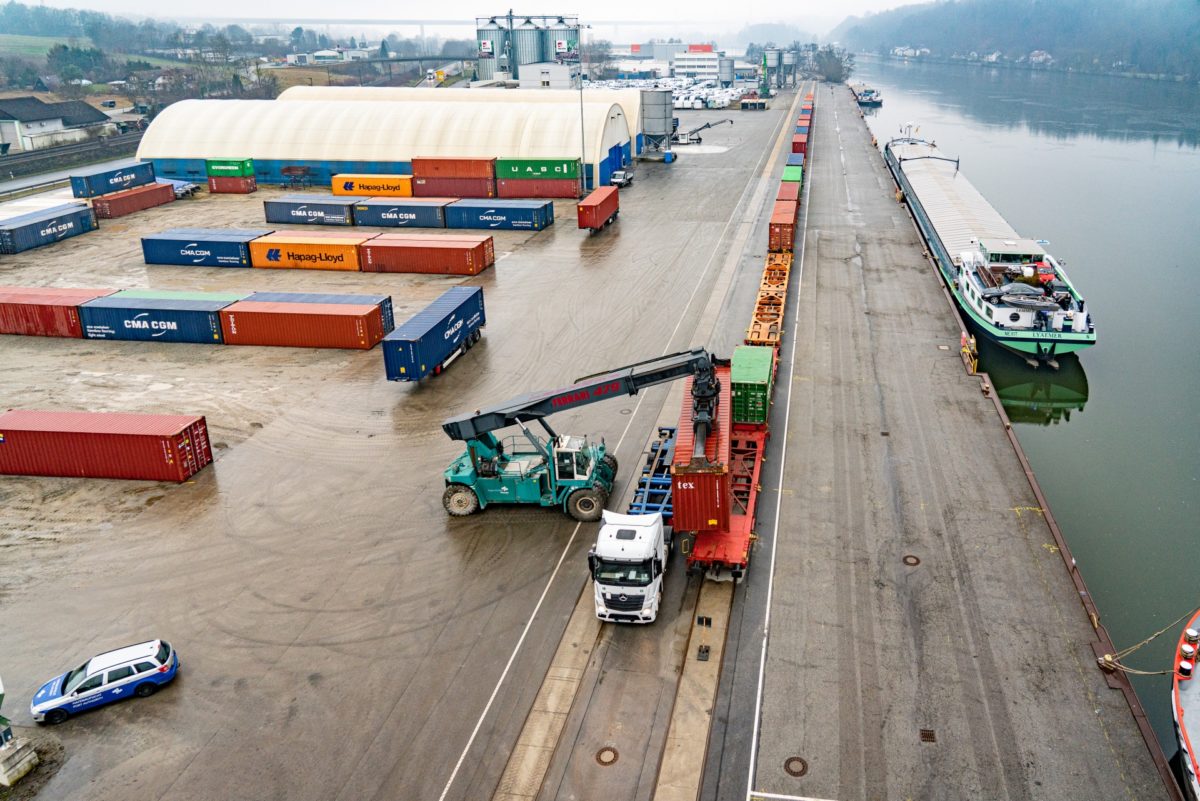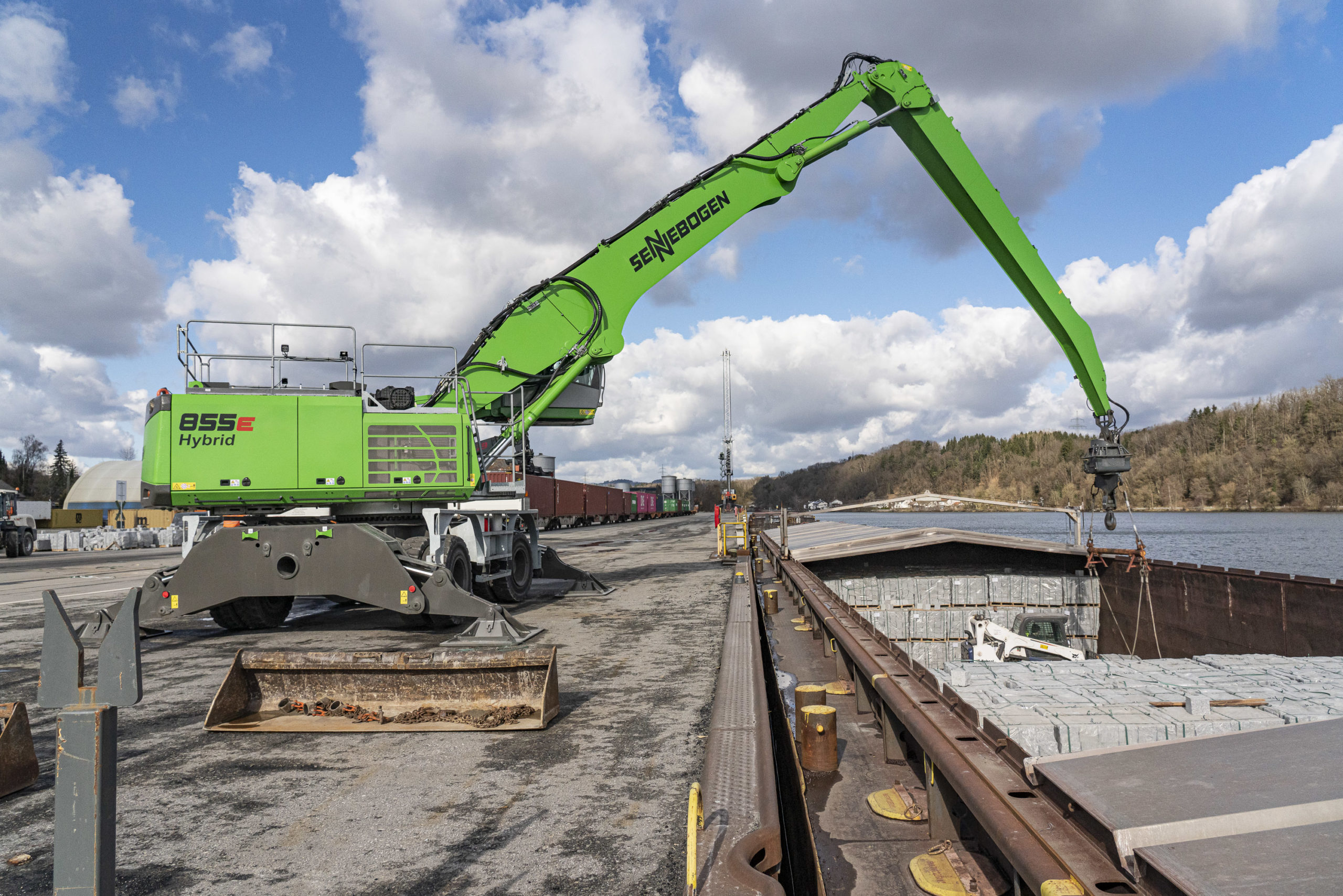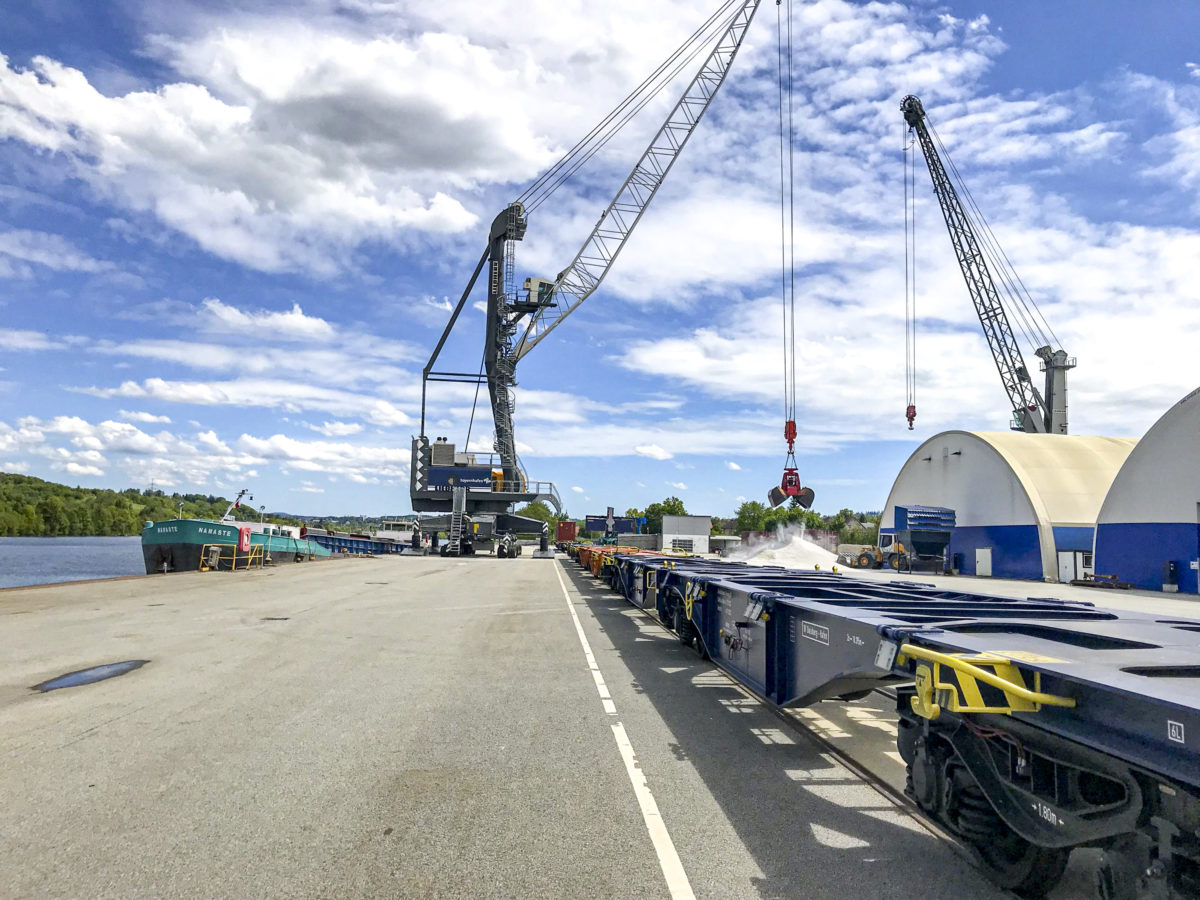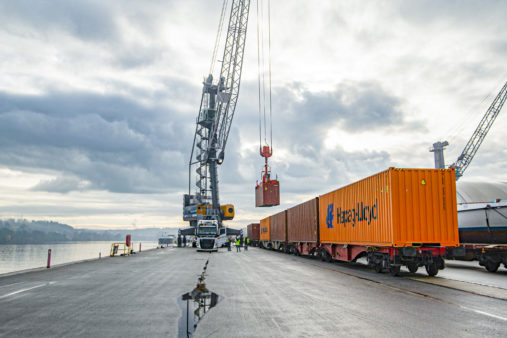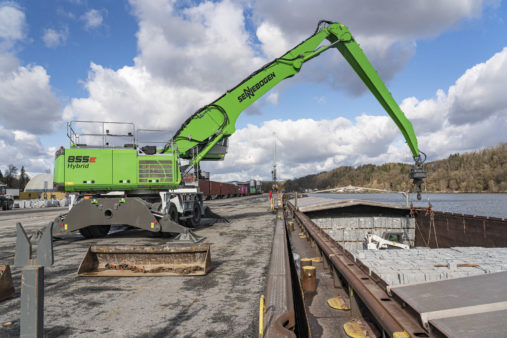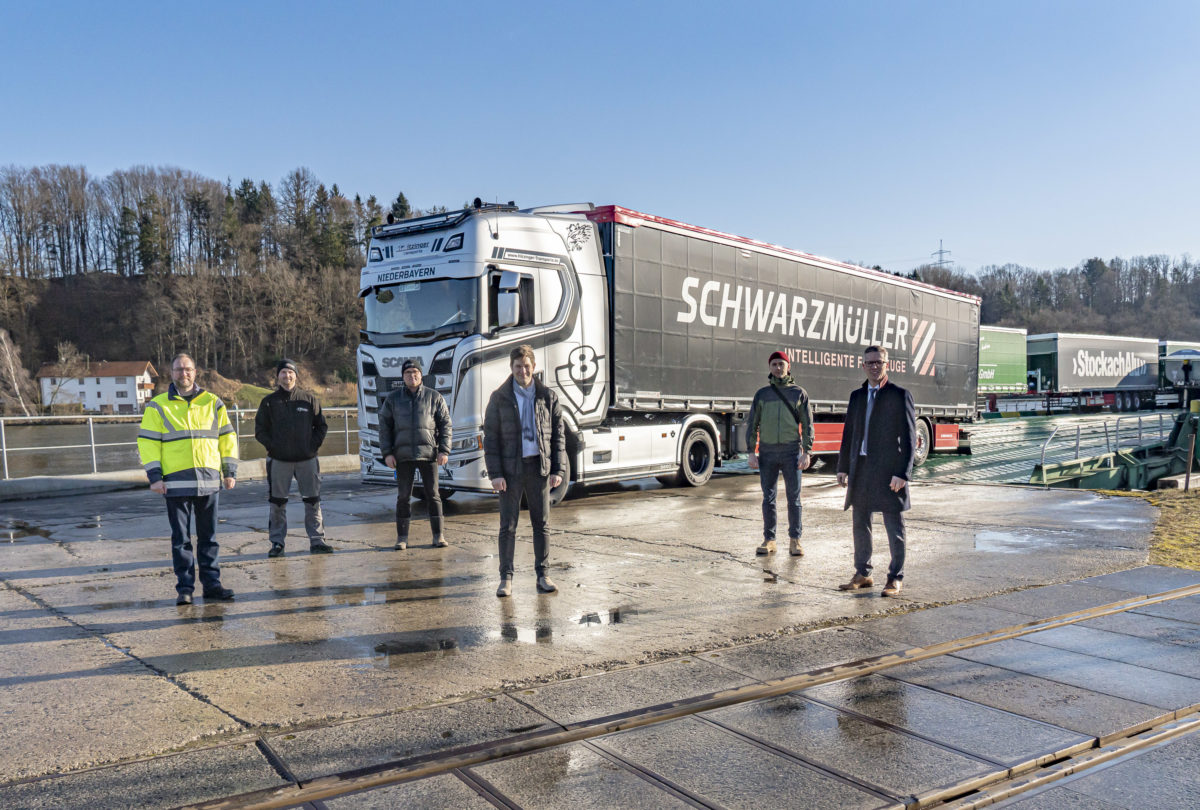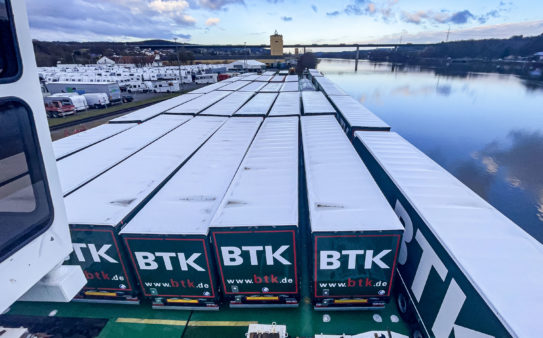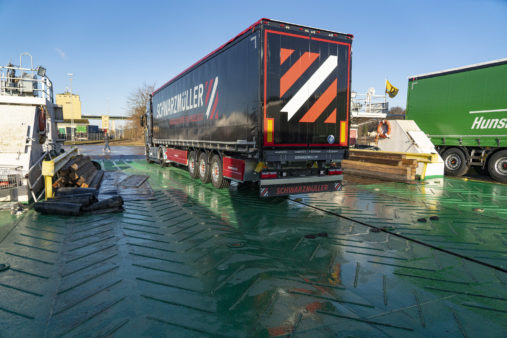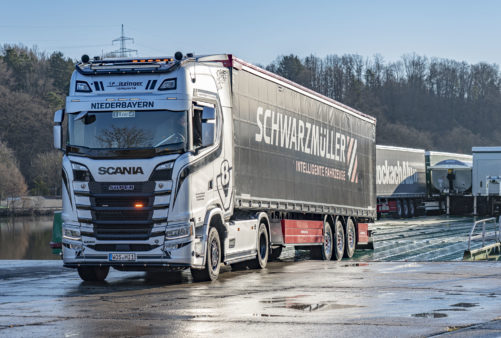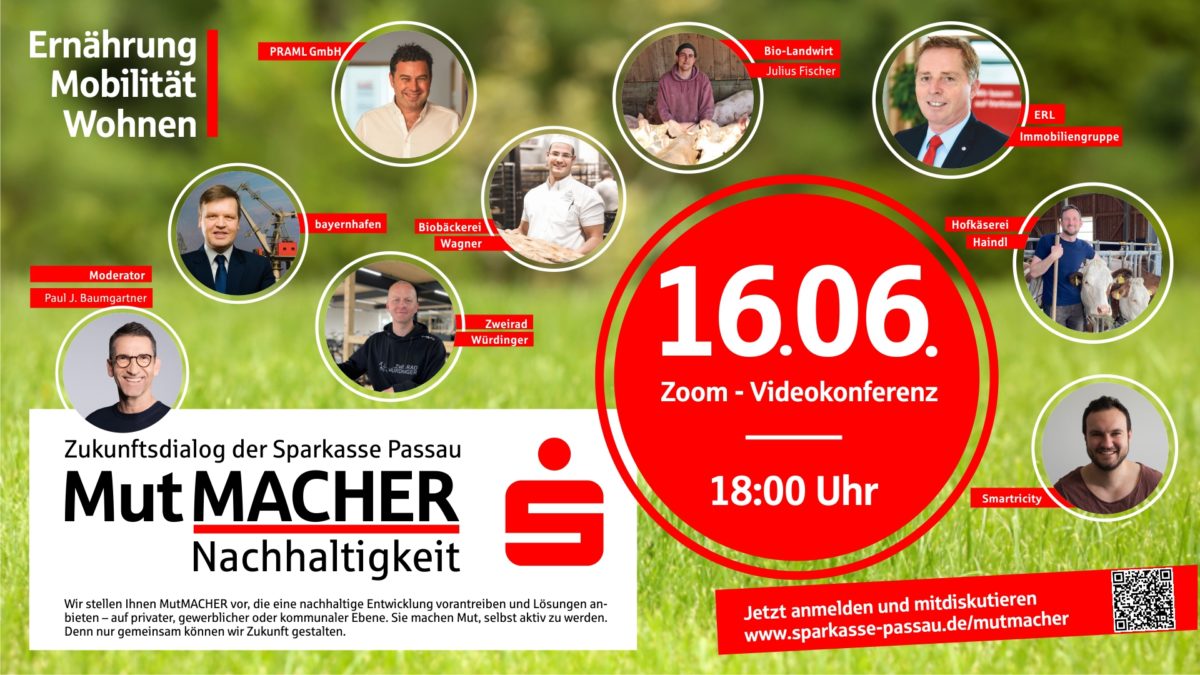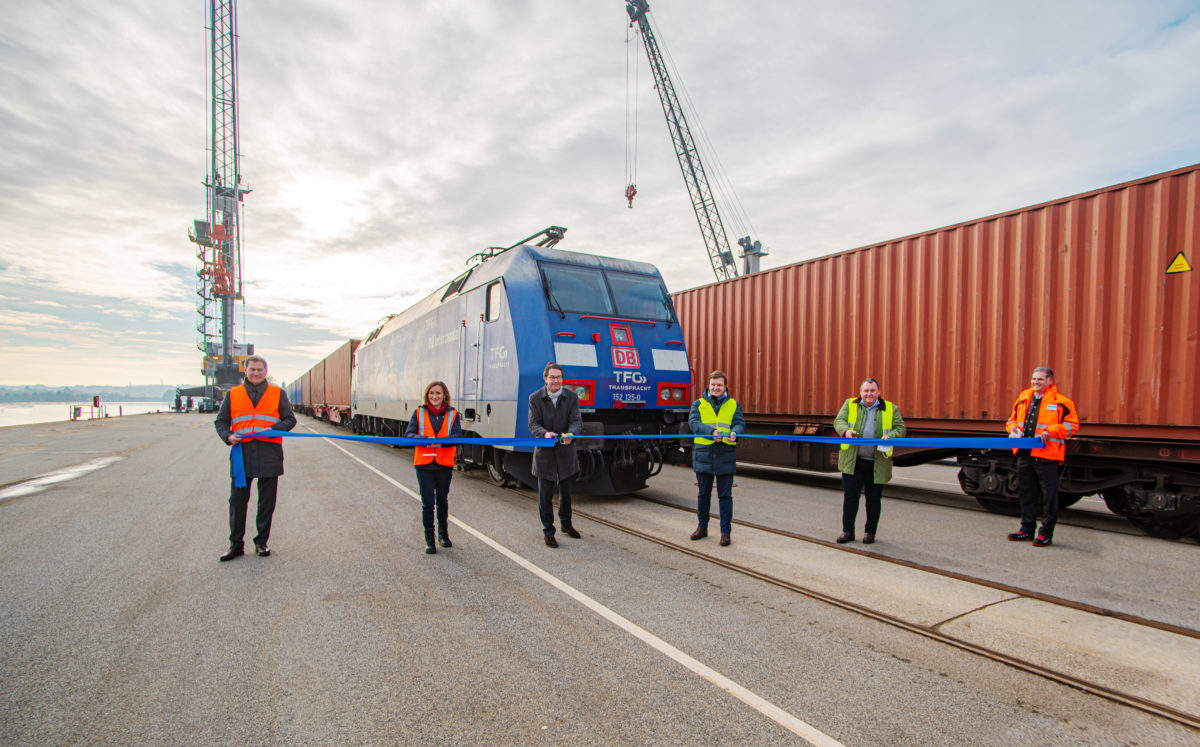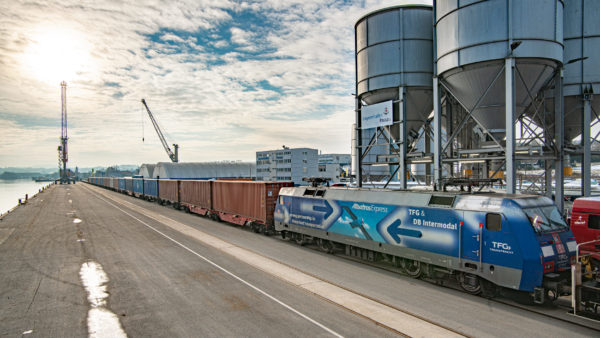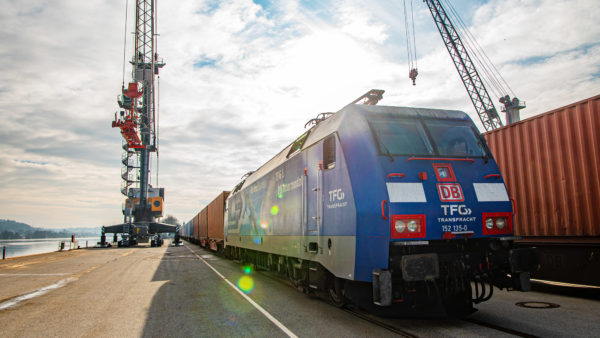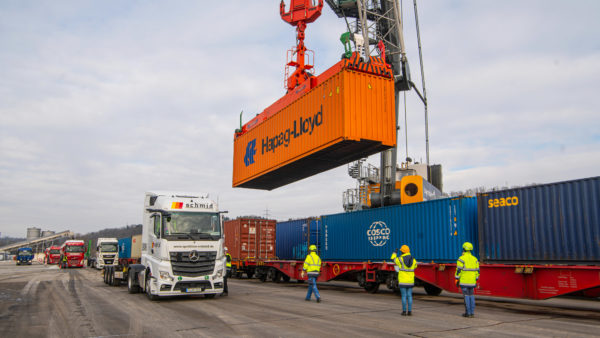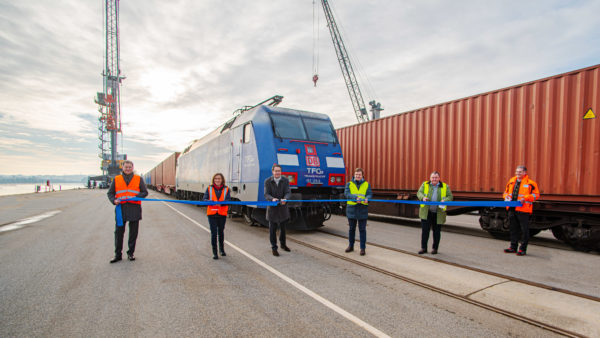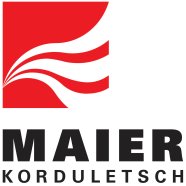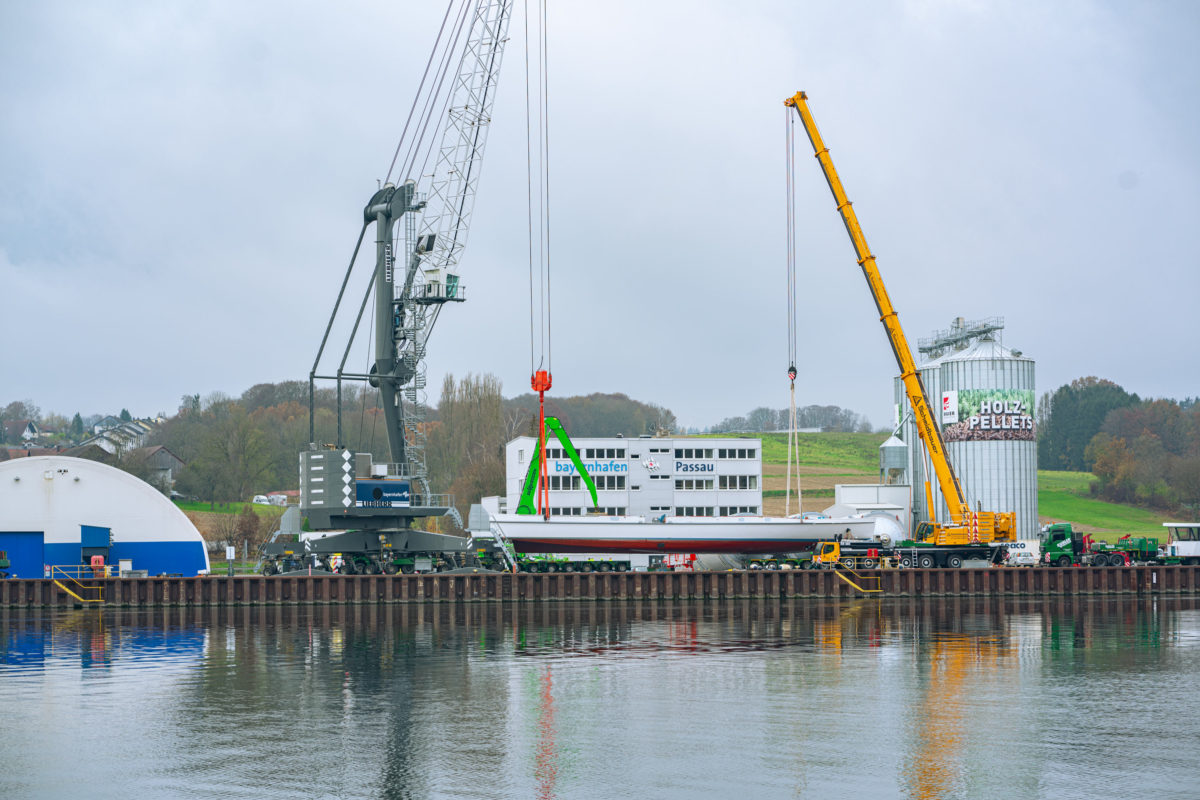
In the 2020 financial year, 447,559 tonnes of cargo and freight were moved by rail and inland waterway at bayernhafen Passau – up 27% on 2019. One of the heavy-lift products it handled in 2020 was Germany’s largest electrically powered lake ship, which it transferred to land in November. The newly built pleasure boat destined for Lake Starnberg was dismantled into several parts. The transfer from water to land was carried out as a tandem heavy-lift operation with the crane specialist Schmidbauer, and also involved the use of bayernhafen’s dedicated mobile crane. (image attribution: bayernhafen / Michael Ziegler)
Passau, 11 March 2021 – bayernhafen Passau pools the different types of cargo and freight and shifts long-distance transport from the road networks to the environmentally friendly transport modes of inland waterway and rail. Even – and indeed, particularly so – in times of crisis, we must be able to rely on the steady supply of the goods that meet our daily needs and ensure that companies in Bavaria can continue to deliver their products to their customers. In the 2020 financial year bayernhafen Passau moved 447,559 tonnes of goods by inland waterway and rail – a 27.3% increase on 2019.
“
Just like in the preceding years, through ensuring highly reliable port operations, bayernhafen Passau was once again able to play its part in ensuring the well-being of our society.
Stefan Ring, Head of Technology and Operations at bayernhafen Passau
In 2020, inland waterway handling at bayernhafen Passau increased by over 105,000 tonnes to 405,319 tonnes – 35% up on 2019. At 42,240 tonnes, rail freight handling reached 81% of the volume achieved in the previous year. Agricultural products made up the lion’s share of the shipping tonnage. Heavy-lift/large-volume transport also continued to play a major role at the Passau-Schalding location. The same was true of ro-ro transport, which links Passau via Enns to Vidin and Ruse in Bulgaria. The main goods handled by rail in 2020 were road vehicles, fertilisers and cement.
“The current crisis shows us more than ever how important stable supply chains are,” says Stefan Ring, Head of Technology and Operations at bayernhafen Passau. In 2020, just like in the preceding years, through ensuring highly reliable port operations, bayernhafen Passau was once again able to play its part in ensuring the well-being of our society.”
bayernhafen Passau, along with Aschaffenburg, Bamberg, Nuremberg and Roth, and Regensburg, is one of the six bayernhafen locations. Even in times of crisis, its skill in developing interfaces enables bayernhafen to continue to pursue its goal of furthering the modal shift, because the ability of the bayernhafen locations to efficiently link the different transport modes means businesses can use rail and inland waterway for long-distance transport as alternatives to transport by road. Through this strategy, bayernhafen is making a key contribution to tapping the full potential of the different transport modes. This takes pressure off the road networks and reduces CO2 emissions.
In 2020, bayernhafen invested around €1.5 million in the redevelopment of its commercial sites and port infrastructure at the Passau location, including in the paving of surfaces for container handling.
New direct Passau–North Sea coast link
In 2020, bayernhafen joined forces with the Chamber of Commerce and Industry of Lower Bavaria and DBCargo’s subsidiary, TFG Transfracht, to prepare a new intermodal train service between bayernhafen Passau and the German seaports. On 1 February 2021, the AlbatrosExpress started running services linking bayernhafen Passau to Hamburg, Bremerhaven, Bremen and Wilhelmshaven, mainly transporting containers loaded with automotive components and commercial goods from the north to Lower Bavaria. In the other direction, goods are exported from across different sectors of the Lower Bavarian economy, including automotive, regenerative systems technology sector and agriculture. The winners are import and export-oriented companies based in Lower Bavaria.
Freight handling in bayernhafen Passau: Germany’s largest electrically powered lake ship
bayernhafen Passau has been a specialist in handling large and heavy project cargo for many years. One of the heavy-lift products it handled in 2020 was Germany’s largest electrically powered lake ship, a newly built pleasure boat destined for Lake Starnberg. From the shipyard in North Rhine Westfalia, the ship travelled down the Rhine, Main, Main-Danube Canal and Danube to bayernhafen Passau. Once it arrived, it was dismantled into several parts: the wheelhouse, deck superstructure and sun deck, and the 110-tonne and 35-metre long hull were successively hauled onto land – the transfer from water to land was carried out as a tandem heavy-lift operation with the crane specialist Schmidbauer, also involving the use of bayernhafen’s dedicated mobile crane. The task of transporting the ship to Lake Starnberg was taken on by two heavy-transport trucks.
Wood pellet depot commences operations
At the end of May, the new wood pellet silo depot of the energy supplier MaierKorduletsch commenced operations. The three 30-metre high silo towers can store a total of 4,500 tonnes of this source of renewable energy. The facilities also include a loading depot equipped with a vehicle weighing scale. The silo facilities enable MaierKorduletsch to meet fluctuations in demand and production volumes as well as expand its pellet business.
“
Although our core business naturally involves developing and managing industrial sites, commercial areas and transport facilities, they can be combined quite nicely with natural areas.
Andrea Betz,
Head of Real Estate Business at bayernhafen Passau
Eco-account sites also in preparation at bayernhafen Passau
The biodiversity protection goal at the Passau-Schalding location involves developing the existing soft-wood copses and developing hardwood coppices. “In our capacity as ‘site architect’ we create the conditions for providing high-intensity logistics companies with commercial sites in close proximity to rail and inland waterway facilities,” says Andrea Betz, Head of Real Estate Business at bayernhafen Passau. “Protecting biodiversity is also one of our key priorities. Although our core business naturally involves developing and managing industrial sites, commercial areas and transport facilities, they can be combined quite nicely with natural areas. Our planned eco-account site in Passau is a good example of this.”
River cruise sector
In 2020, 138 cruise ships docked at bayernhafen Passau – the reduction of more than half the normal figure was a direct result of the crisis. bayernhafen is continuing to invest in the development of its piers and in its replenishment facilities for river cruise ships in Racklau. The number of berths are to be expanded to seven, including electrification.
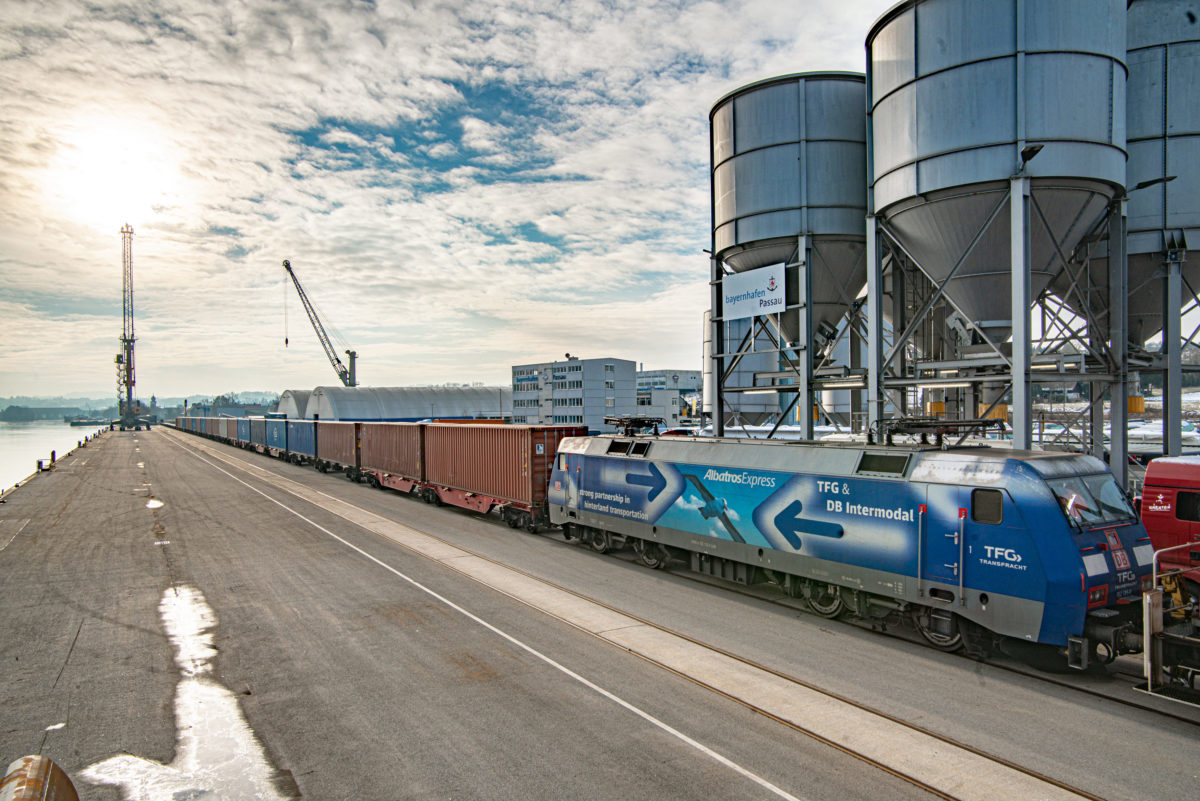 On 1 February 2021, bayernhafen Passau (pictured) was connected to TFG Transfracht’s Combined Transport network. The new service means that all of the five trimodal bayernhafen locations of Aschaffenburg, Bamberg, Nuremberg, Regensburg and Passau now run scheduled rail services to the German seaports. (image attribution: bayernhafen / Michael Ziegler)
On 1 February 2021, bayernhafen Passau (pictured) was connected to TFG Transfracht’s Combined Transport network. The new service means that all of the five trimodal bayernhafen locations of Aschaffenburg, Bamberg, Nuremberg, Regensburg and Passau now run scheduled rail services to the German seaports. (image attribution: bayernhafen / Michael Ziegler)
